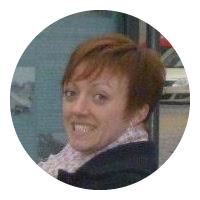Dr Ruth Godfery
Swansea University
- Conference: Passive Sampling, Wastewater Screening and Sensing Water Quality
- Presentation: Screening of pharmaceutical and other medicinal compounds within environmental samples
- Presentation Time: Thursday 14:10


Ruth is a Forensic Chemist, with a PhD in mass spectrometry (MS). Her interest in MS (particularly hyphenated techniques involving chromatography) started in the pharmaceutical industry, which provided the basis of her PhD (2008) and postdoctoral research on biomolecule elucidation and instrument development with Prof Brenton at the Institute of Mass Spectrometry at Swansea. In 2011 she was appointed as a Lecturer in Liquid Chromatography-Mass Spectrometry (LC-MS) specialising in analytical methods, pharmaceutical, environmental and forensic analysis, including quality management systems and professional laboratory practice and Director of Postgraduate programmes (MSc, MRes, PG Dip., PG Cert.) in Applied Analytical Science (LCMS) in 2016. Ruth trains staff and external parties in LC-MS working with multinational companies, government agencies and SMEs in supporting innovation-led education and research.
Ruth's research focuses on pharmaceutical analysis and analytical technologies for medical/chemical analysis, with collaborators in academia, government agencies and industry. Recent research is concerned with environmental medicine, waste management and developing MS and sample preparation technologies, translating equipment and methods between the application areas. She has received grant funding (RCUK/charities) and supervised postgraduate research students.
Ruth is a Chartered Chemist, Chartered Scientist, Fellow of The Higher Education Academy and an active member of the British Mass Spectrometry Society, American Society for Mass Spectrometry and Royal Society of Chemistry (RSC). She supports the Analytical Methods Committee of the RSC, generating teaching materials and good practice guides as a member and secretary of the Instrumental Analysis Sub-committee. She is also an RSC scheme accreditation assessor and an outreach Chemnet Ambassador.
The persistence of organic pollutants, such as pharmaceuticals, within the environment is a growing area of research. Until the introduction of current EU Directives the impact of drug emission into the environment through wastewater treatment was largely unconfirmed and unrestricted. Compounds with high octanol-water partition coefficient (Kow), like many common pharmaceuticals, are not biodegraded during wastewater treatment and can bioaccumulate through adsorption to soils and sludge. Typical disposal routes for wastewater sludge are landfill or deposition on agricultural land as a fertiliser. More stringent restrictions for landfill has meant an increasing amount of sludge waste is used as fertiliser and it is important to understand the extent of any chemical accumulation on land. Current legislation safeguarding landfill and the environment requires this monitoring with the Chemical Investigation Programme implemented as a UK-wide initiative. Existing protocols for wastewater samples (including sludge) can be laborious requiring significant resource and time. A 'Quick, Easy, Cheap, Effective, Rugged and Safe' (QuEChERS) protocol originally developed for foodstuffs has shown considerable promise in extracting a range of compounds from complex matrices of different chemistries. We have investigated this method using reversed-phase liquid chromatography-mass spectrometry (LC-MS) for the extraction of a range of complex environmental samples developing an optimised protocol with reduced matrix interference and increased recovery of a broad selection of medicinal compounds.